
📝 Mastering “什么” (shénme) – The Essential Chinese Question Word
Learn how to use the Chinese question word “什么” (shénme) to ask “what” in daily conversations. With examples, tips, and practice sentences to sound natural in Chinese.
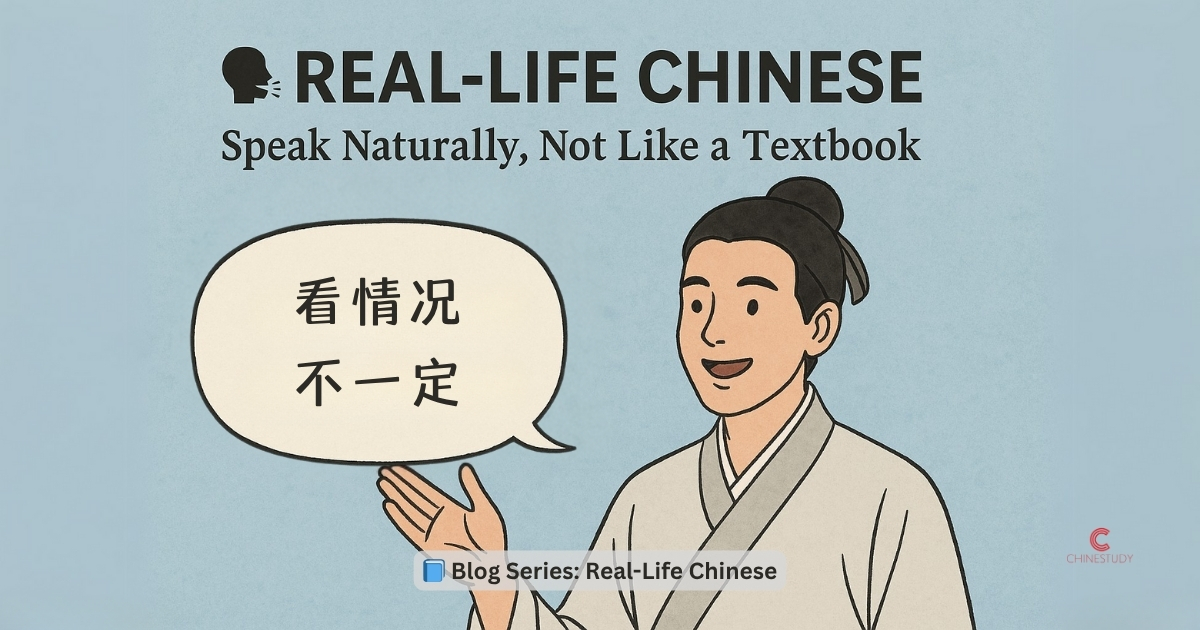
🗣️ How to Say “It Depends” Naturally in Chinese — Not Just “我不知道”
Want to say “it depends” in Chinese and sound natural? Instead of the textbook “我不知道” (wǒ bù zhīdào), try native phrases like “看情况” (kàn qíngkuàng) or “不一定” (bù yídìng) to sound more flexible and conversational.

🗣️ How to Say “Let’s Wait and See” Naturally in Chinese — Not Just “我不知道”
In real conversations, Chinese people don’t always say “我不知道” to delay a plan. Learn natural phrases like “到时候再说” and “再看看吧” to sound polite, warm, and flexible — just like native speakers.

📝 How to Say “You Mean…?” Naturally in Chinese — Not Just “我不明白”
Want to clarify what someone just said? Don’t say “我不明白”! Use real-life Chinese phrases like “你的意思是…?” or “所以你是说…?” to sound more natural and polite.

🗣️ How to Say “I’m Not Free” Without Sounding Cold — Not Just “我没空”
“我没空” is correct, but it can sound cold. In this post, you’ll learn how to say “I’m not available” more naturally with phrases like “最近挺忙的”, “改天吧”, and “看情况吧”.

How to Say “I Like It” Naturally in Chinese — Not Just “我喜欢”
“I like it” in Chinese isn’t always “wǒ xǐhuan.” Native speakers use softer, more natural phrases like tǐng xǐhuan de, mán xǐhuan de, and hái mán xǐhuan de to sound more casual and real.
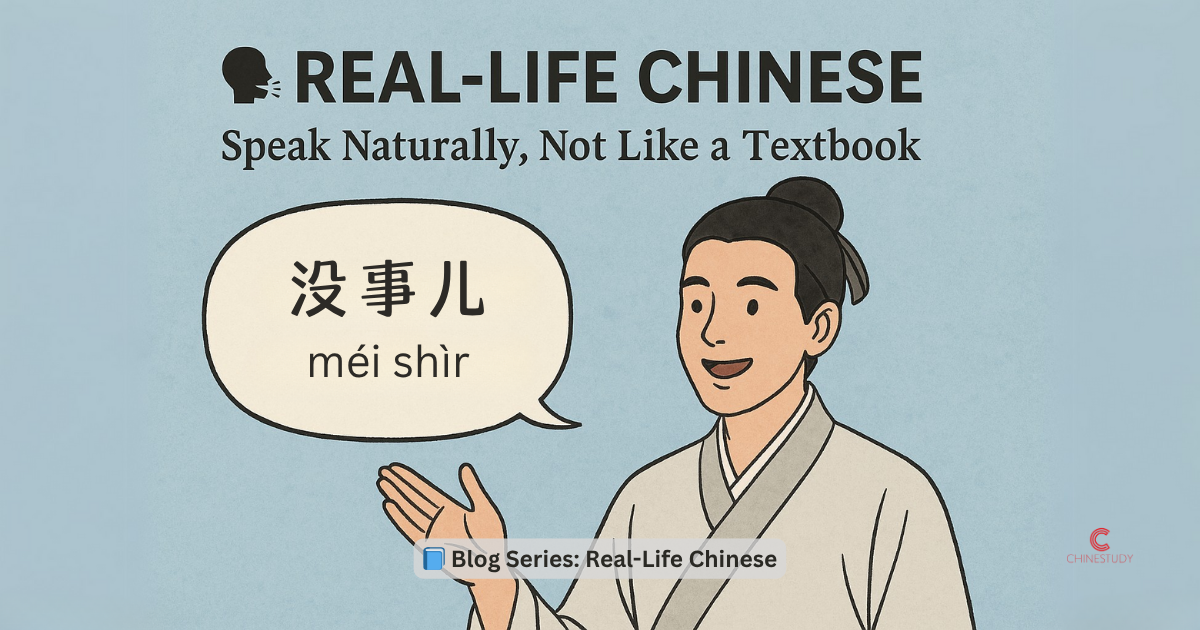
How to Say “It’s Okay” Naturally in Chinese — Not Just “没关系”
“没关系” is fine—but in real life, Chinese people often say “没事儿” or “没什么啦” instead. These phrases sound warmer, friendlier, and more natural.

How to Say “I’m Busy” Naturally in Chinese — Not Just “我很忙”
“我很忙” is correct but sounds robotic. Learn how native speakers really say they’re busy with phrases like “挺忙的” and “忙死了” — colorful, casual, and truly Chinese.

How to Say “Thank You” Naturally in Chinese — Not Just “谢谢”
“谢谢 Xièxie” is polite, but it can sound generic. Learn three heartfelt ways to show gratitude the way native speakers do.
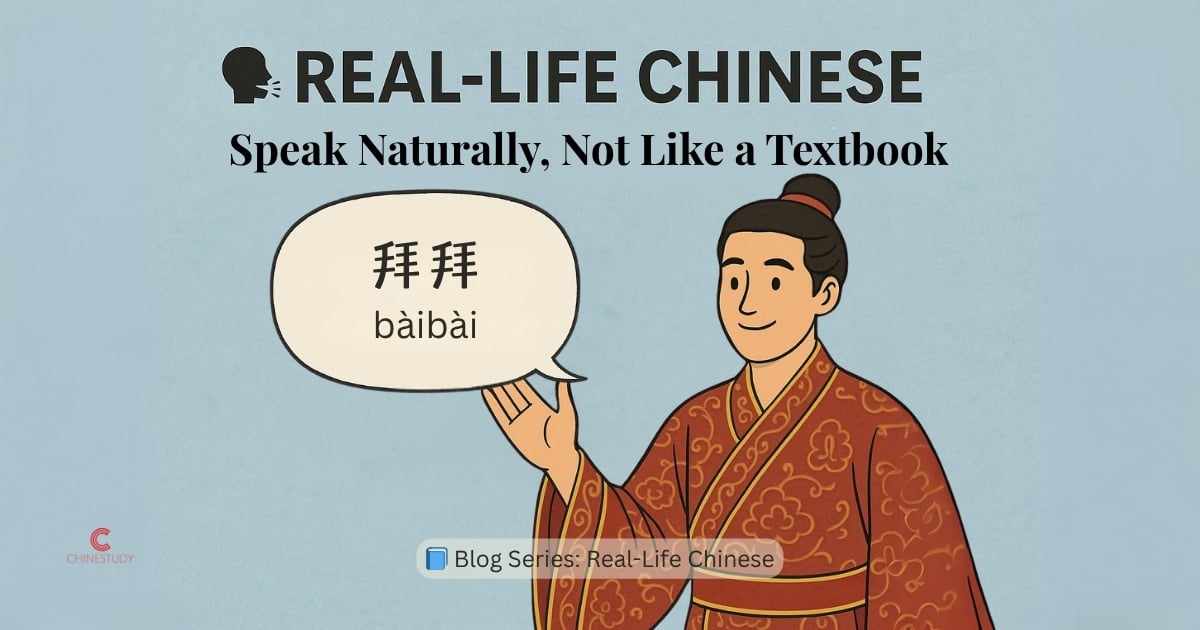
How Chinese People Really Say Goodbye — Not Just “再见”
Saying “再见” sounds polite — but also stiff. Learn how native speakers say goodbye naturally with phrases like “拜拜,” “回见,” and “走了.”
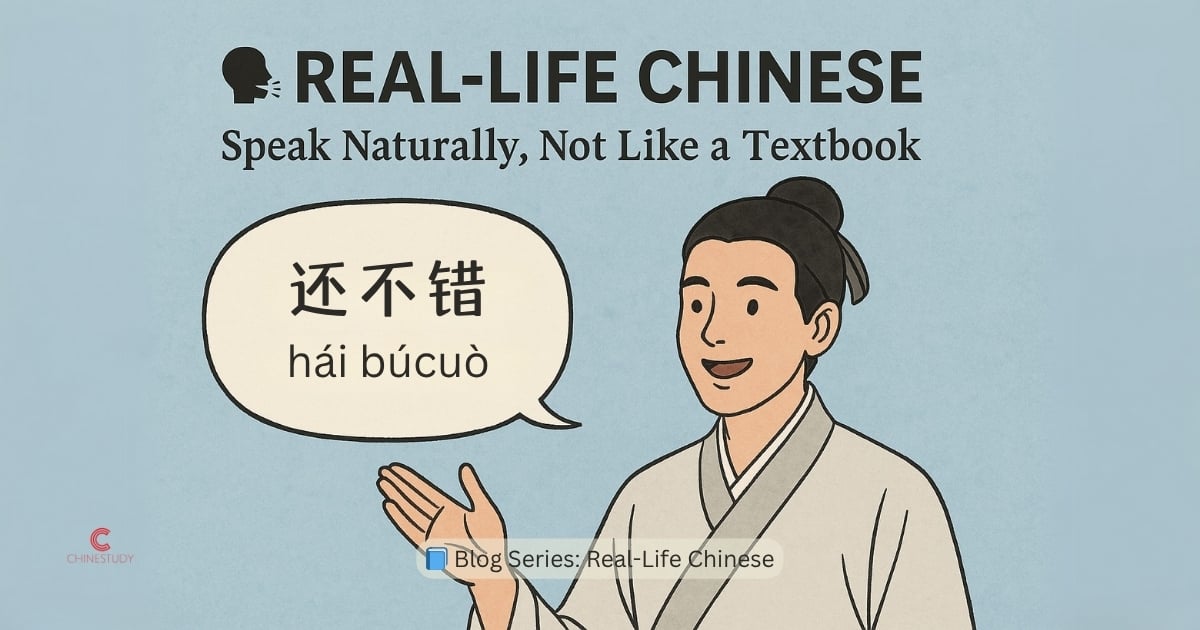
How to Say “I’m Fine” the Way Locals Do — Not Just “我很好”
Instead of the robotic “我很好” (wǒ hěn hǎo), try these natural, friendly ways to reply to “How are you?” and sound more like a native speaker.
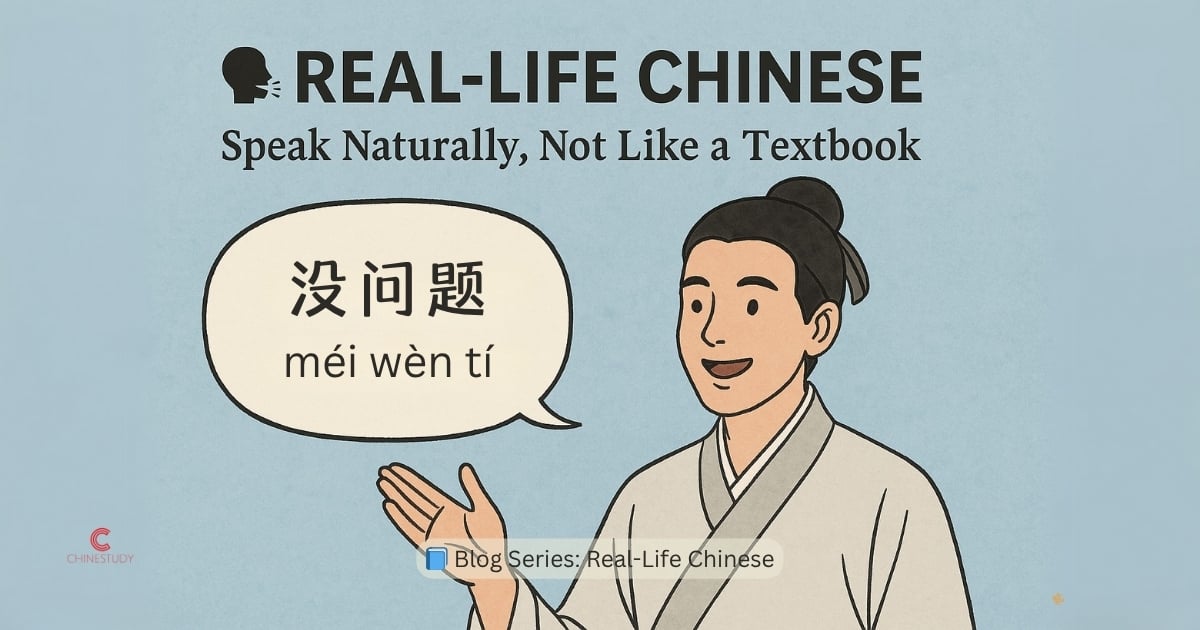
How to Say “Okay” Casually in Chinese — Not Just “可以”
Learn how to say “yes” more naturally in Chinese. Instead of the textbook word “可以 (kěyǐ),” try using casual expressions like “行,” “没问题,” or “好的” — just like native speakers!
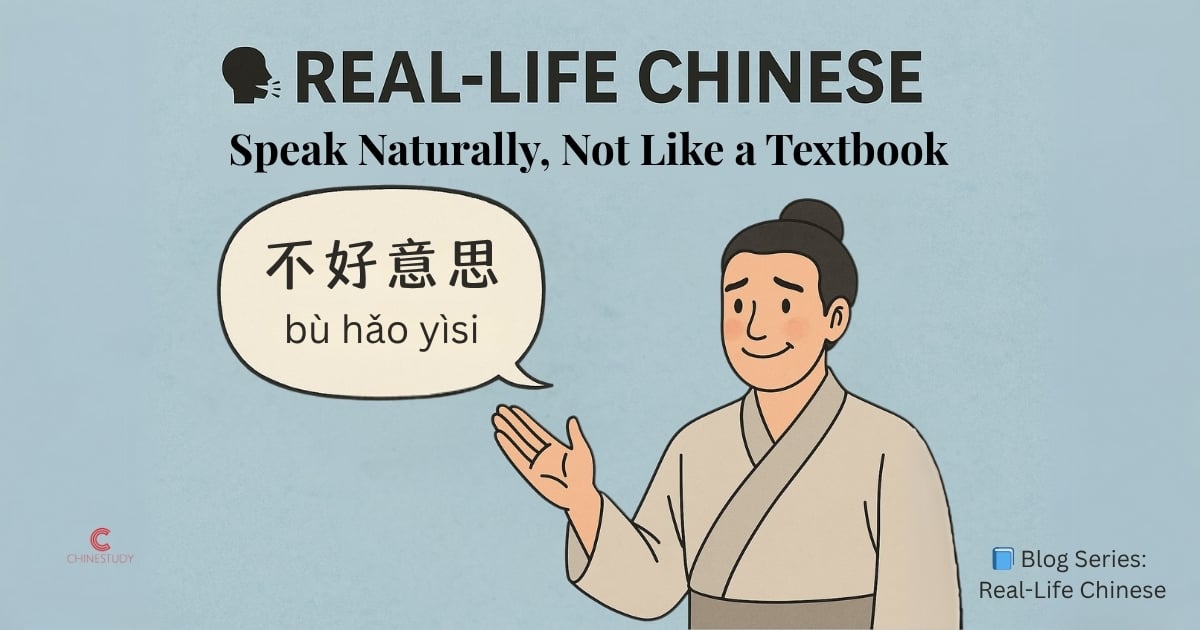
How Chinese People Really Say “Sorry” — Not Just “对不起”
Learn when to say “不好意思 (bù hǎo yìsi)” instead of “对不起”! It’s softer, more polite, and used in many everyday situations — perfect for real conversations.
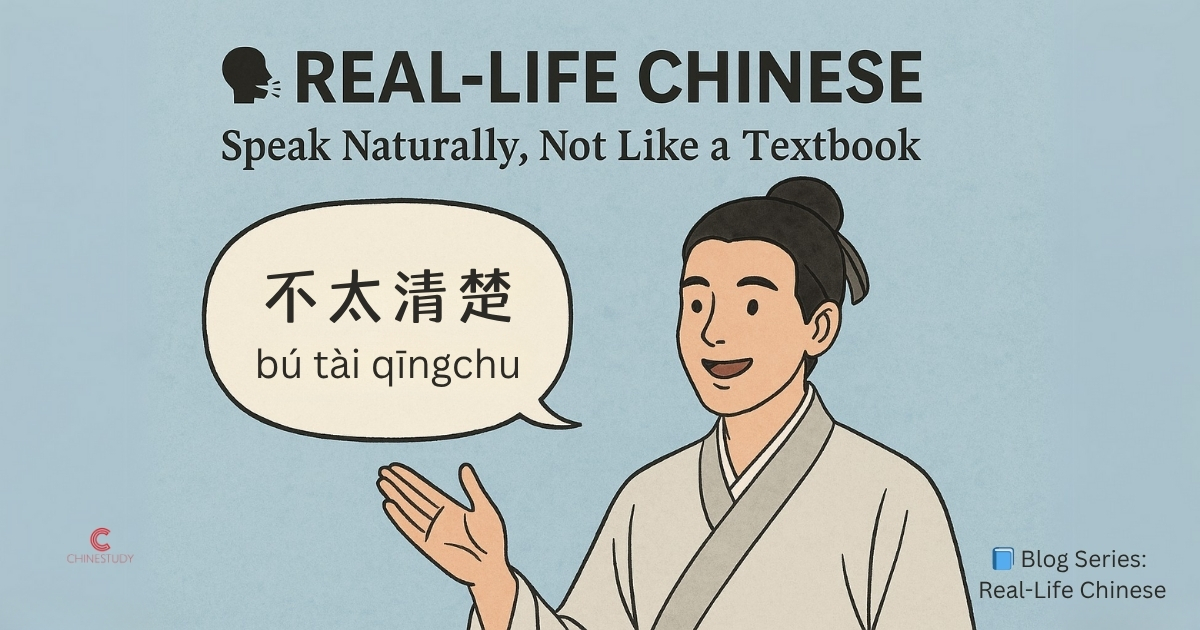
How to Say “I Don’t Know” Like a Native — Not Just “我不知道”
“我不知道” sounds flat and too direct in daily conversations. Learn how to sound more natural by saying “不太清楚” — a softer and more real-life way to say “I’m not sure.”
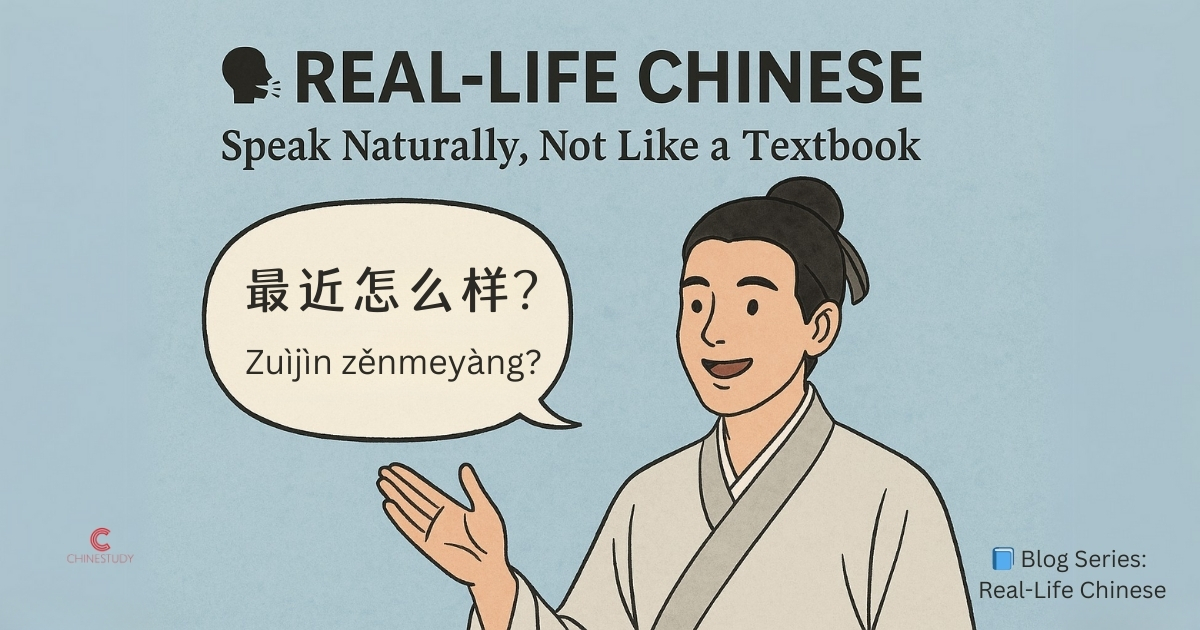
How to Ask “How Are You” Naturally in Chinese — Not Just “最近怎么样”
“你好吗?” sounds too formal. Here’s what native speakers say instead — and why it matters for your daily Chinese.
